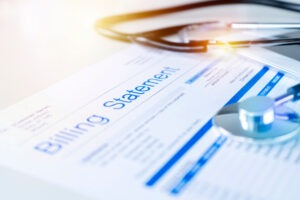
Being involved in an accident can result in various injuries and medical expenses. If you’ve been injured in an accident in Connecticut, you may be wondering who is responsible for paying your medical bills.
The answer depends on several factors, including the type of accident, insurance coverage, and the circumstances surrounding the incident. This article will explore the different scenarios determining who will pay your medical bills after an accident and how a personal injury lawyer in Connecticut can help.
Motor Vehicle Accidents
- Personal Injury Protection (PIP) Coverage: In Connecticut, motor vehicle accidents are governed by no-fault insurance laws.
This means that regardless of who is at fault for the accident, each driver’s insurance company is responsible for paying their medical expenses through Personal Injury Protection (PIP) coverage.
PIP coverage is required in Connecticut and typically covers medical bills, lost wages, and other accident-related expenses up to the policy limits.
- Health Insurance: Besides PIP coverage, your health insurance may also cover your medical bills after a motor vehicle accident.
Your health insurance provider will generally pay for your medical treatment, subject to any deductibles, copayments, or coverage limitations outlined in your policy.
Reviewing your health insurance policy to understand the extent of coverage for accident-related injuries is essential.
- Subrogation: Sometimes, when you receive compensation from the at-fault party’s insurance company or through a personal injury lawsuit, your health insurance company may seek reimbursement for the medical expenses they cover.
This process is known as subrogation. Working with an experienced personal injury attorney to navigate the subrogation process and negotiate any potential medical bill reimbursements is crucial.
Slip and Fall Accidents
When it comes to slip-and-fall accidents, determining who pays your medical bills depends on the location and circumstances of the incident.
- Homeowner’s Insurance: If you slip and fall on someone else’s property, such as a private residence, the homeowner’s insurance policy of the property owner may cover your medical expenses.
It is important to immediately report the incident to the property owner and their insurance company.
- Commercial General Liability Insurance: If the slip and fall accident occurs on commercial premises, such as a store, restaurant, or office building, the property owner’s commercial general liability insurance may cover your medical expenses.
It is crucial to report the incident to the property owner or manager and gather any evidence, such as photographs or witness statements, to support your injury claim.
- Premises Liability Lawsuits: If negotiations with the property owner’s insurance company do not result in a fair settlement, you may file a premises liability lawsuit. In such cases, your medical bills may be covered as part of the compensation awarded in the lawsuit.
Workplace Accidents
When injured in a workplace accident in Connecticut, you may be eligible for compensation through the state’s workers’ compensation system.
- Workers’ Compensation: Workers’ compensation is a form of insurance that provides medical benefits and wage replacement to injured employees.
If you are injured in a workplace accident, you should immediately report the incident to your employer and seek medical attention. Your employer’s workers’ compensation insurance will typically cover your medical expenses related to the work-related injury lawsuit.
- Third-Party Liability: In some cases, if a third party, such as a contractor or equipment manufacturer, is responsible for your workplace accident, you may be able to pursue a personal injury claim against them. If successful, any medical bills related to the accident may be covered as part of the compensation awarded in the lawsuit.
Other Types of Accidents
The responsible party’s liability insurance or professional liability insurance may cover your medical expenses for accidents that do not fall into the abovementioned categories, such as product liability or medical malpractice cases.
It is crucial to consult with an attorney specializing in the specific area of law related to your accident to understand your options and pursue appropriate compensation.
Conclusion
Determining who pays your medical bills after an accident in Connecticut depends on various factors, including the type of accident, insurance coverage, and liability. Personal Injury Protection (PIP) coverage and health insurance often come into play in motor vehicle accident lawsuits.
Slip and fall accidents may involve homeowners’ or commercial general liability insurance. Workers’ compensation insurance typically covers workplace accidents. Liability insurance or professional liability insurance may apply for other types of accidents.
It is crucial to consult with an experienced Connecticut personal injury lawyer to understand your rights, navigate the insurance claims process, and seek appropriate compensation for your medical expenses after an accident.

